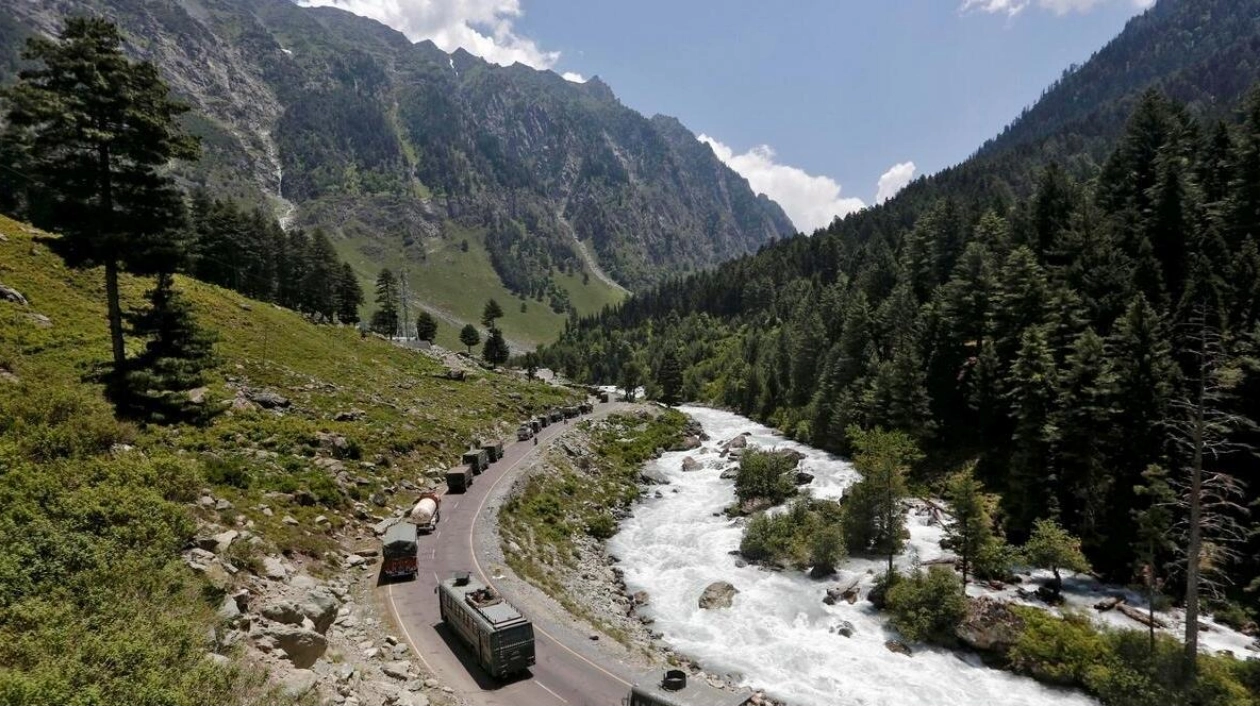India's ambitious infrastructure development is a strategic move to elevate the country to the status of a global superpower. This comprehensive approach covers multiple sectors such as transportation, energy, digital connectivity, and urban development, aiming to reshape India's economic framework, strengthen its international position, and improve the lives of its 1.4 billion citizens.
A key focus of this infrastructure surge is the enhancement of transportation networks. The government has launched significant projects like Bharatmala and Sagarmala to revolutionize road and port connectivity. Bharatmala targets the construction and upgrading of thousands of kilometers of highways, improving inter-state connections and logistics. Meanwhile, Sagarmala focuses on modernizing ports and coastal infrastructure to boost maritime trade and lower logistics costs, fostering regional growth and attracting foreign investment.
The railway sector, integral to India's transport network, is also undergoing major changes with the introduction of high-speed trains, station modernization, and track electrification, aiming to create a world-class rail system. These upgrades are set to increase the efficiency and safety of rail travel, making it a preferred choice for both passengers and freight. The proposed Dedicated Freight Corridors (DFCs) will significantly transform goods transportation, reducing transit times and costs.
Investments in energy infrastructure are also substantial, with India targeting 450 GW of renewable energy capacity by 2030. This includes significant investments in solar and wind projects, which aim to decrease reliance on fossil fuels, reduce emissions, and create green jobs. This shift to sustainable energy models will meet domestic demands and position India as a leader in the global renewable energy sector.
Digital infrastructure is pivotal in India's growth strategy, with the Digital India initiative focusing on enhancing internet connectivity, promoting digital literacy, and facilitating e-governance. By extending broadband access to rural areas, the initiative aims to bridge the digital divide, empowering citizens with access to information, services, and opportunities, fostering innovation and integrating India into the global digital economy.
Urban development projects such as the Smart Cities Mission and the Atal Mission for Rejuvenation and Urban Transformation (AMRUT) are reshaping urban landscapes by improving infrastructure, enhancing public services, and promoting sustainable practices. These smart cities, equipped with advanced technology and efficient planning, aim to improve quality of life while addressing urban challenges like pollution and congestion.
The socio-economic implications of these infrastructure developments are significant, enhancing access to markets, education, healthcare, and employment. This can lead to inclusive growth, reducing regional disparities and uplifting marginalized communities. Improved infrastructure also boosts productivity and competitiveness, making India an attractive destination for global investors and businesses.
India's infrastructure development is not just about constructing physical assets; it is a strategic move to shape the nation's future. It aims to create a strong foundation for sustainable economic growth, foster innovation, and enhance India's global standing. As these projects materialize, they will stimulate economic activities, generate employment, and improve living standards.
However, the journey to becoming a global superpower comes with challenges. Efficient project implementation, timely completion, and effective management are crucial. Addressing environmental sustainability, land acquisition issues, and securing adequate financing are key hurdles. Public-private partnerships and leveraging cutting-edge technologies will be essential for the success of these initiatives.
India's strategic push to build infrastructure is fundamental to its goal of becoming a global superpower. The transformative impact of these projects is not only in their scale and ambition but also in their ability to drive inclusive growth, enhance competitiveness, and secure India's position on the global stage. By investing in infrastructure, India is investing in its future, paving the way for a more prosperous, sustainable, and influential nation.






